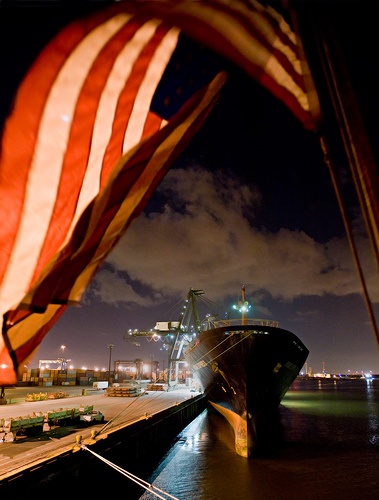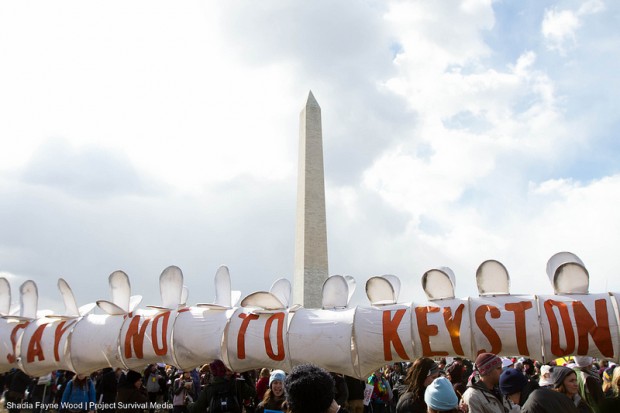We have much more to do and your continued support is needed now more than ever.
Keystone XL: Exports, Not Energy Security
Keystone XL, the tar sands mega-project, is a potent symbol of the climate crisis and our global addiction to fossil fuels. It is also — first and foremost — an export pipeline designed to send tar sands oil from Canada through the United States to the Gulf Coast, where it will be refined and shipped overseas. Canadian politicians and industry executives have made no secret of this fact, but Big Oil’s friends in Congress continue to insist that the project will benefit Americans, despite overwhelming evidence to the contrary.

Sometimes it’s easiest to let the opposition speak for themselves, so here’s what our “friendly neighbors to the north” really hope to gain from their pipeline:
I am very serious about selling our oil off this continent, selling our energy products off to Asia. I think we have to do that.
Stephen Harper, Canadian Prime Minister – February 10, 2012
Well, not all of it’s going to be exported.
Lee Terry, U.S. Congressman – February 7, 2013
For Alberta, the strategic imperative is that we get our products to the ocean, so that we secure global prices for our products. The solutions are additional pipelines to the West Coast, to the East Coast, to the Gulf Coast, and also train-car delivery of bitumen and oil products to the coast.
Ken Hughes, Alberta Energy Minister – January 3, 2013
We have a duty to ensure that our resources, especially Alberta oil and gas, get to new markets at a much fairer price. We absolutely must find ways to get Alberta oil to multiple customers around the world and get a competitive price.
Alison Redford, Alberta Premier – January 24, 2013
Any effort to restrict market forces on commodities like oil and natural gas is a North Korean style model of economics and has no place here in America. Having the flexibility to export more should there be an occasional surplus of supply would go a long way to help reduce our trade deficit.
John Felmy, American Petroleum Institute Chief Economist – February 3, 2012
Long term, our strategy has always been to get Canadian heavy crude to the U.S. Gulf Coast.
Bill Klesse, Valero CEO and Chairman (Valero is a major refiner contracting for Keystone XL) – March 10, 2011
“Main products [of Valero’s Port Arthur, TX hydrocracker project] are high-quality diesel and jet fuel for growing global demand for middle distillates” and it is “Located at large, Gulf coast refinery to leverage existing operations and export logistics.”

Valero investor report slideshow – September 15, 2012
Is it all going to be used in the U.S. by U.S. consumers? No. Most of it will be, but it will be available for export.
Charles Drevna, American Fuel & Petrochemical Manufacturers President – January 31, 2012
“No, I can’t do that.”
Alex Pourbaix, TransCanada’s President for Energy and Oil Pipelines (Response to Rep. Ed Markey’s question of whether he would support an export ban on Keystone XL’s refined products.)– December 2, 2011
Shippers on the Keystone XL Pipeline have contracted for access to the [US Gulf Coast] market for their oil sands production and refining needs. Not only will this directly benefit these shippers, it will also provide a benefit to all [Western Canadian] heavy crude producers by increasing the price they receive for their crude, as well as providing significant pipeline capacity to an alternative market.[x]
Purvin & Getz, Inc. study performed for TransCanada – 2009
If President Obama approves Keystone XL, Americans would get all of the risk of a pipeline without any benefits to energy security or gas prices — not to mention the project’s serious implications for climate change and wildlife in Canada and the US. Tell the White House to say NO! to this dangerous and dirty project.
![]() Speak up for wildlife like Woodland Caribou — tell President Obama to reject Keystone XL.
Speak up for wildlife like Woodland Caribou — tell President Obama to reject Keystone XL.




















